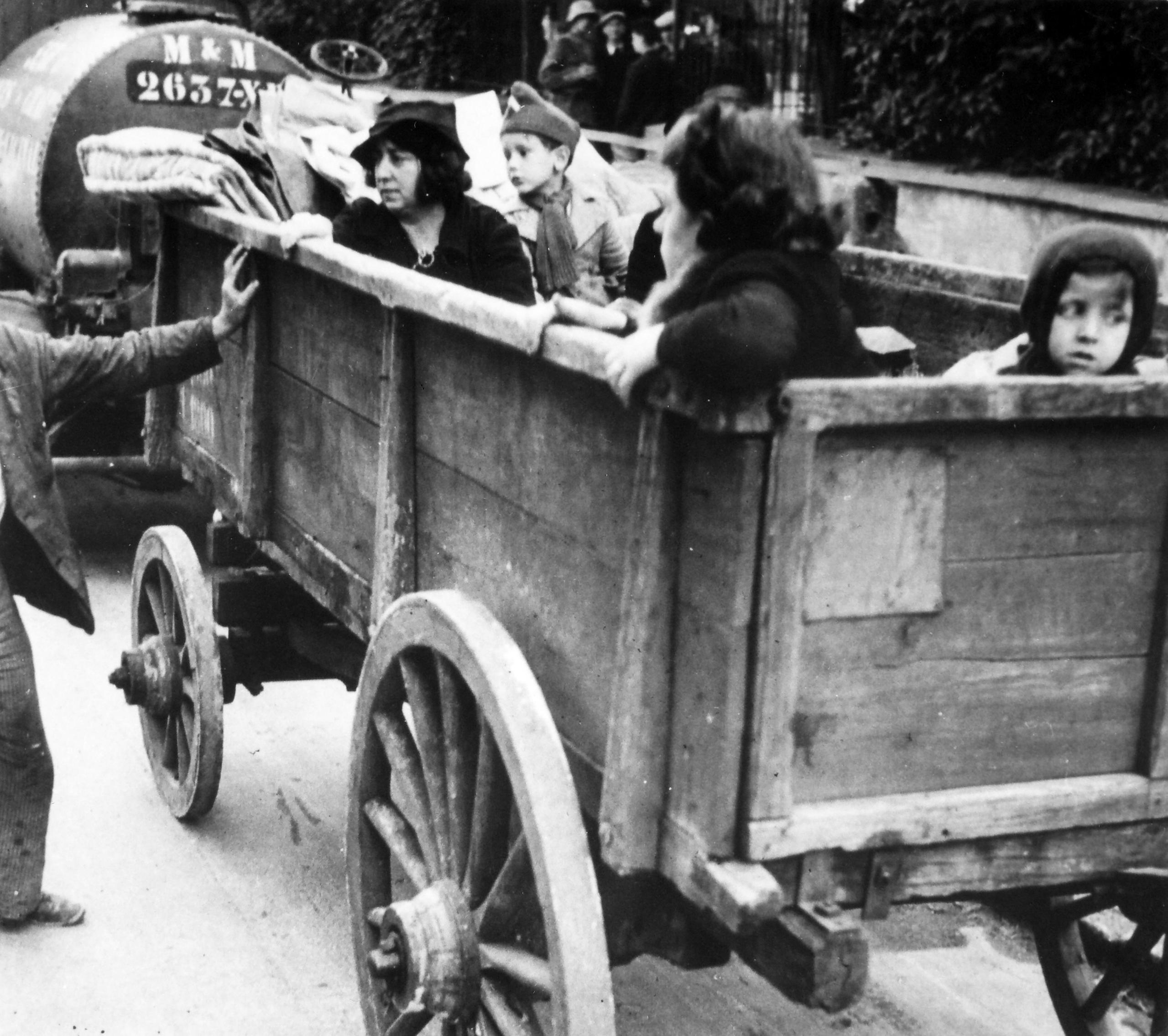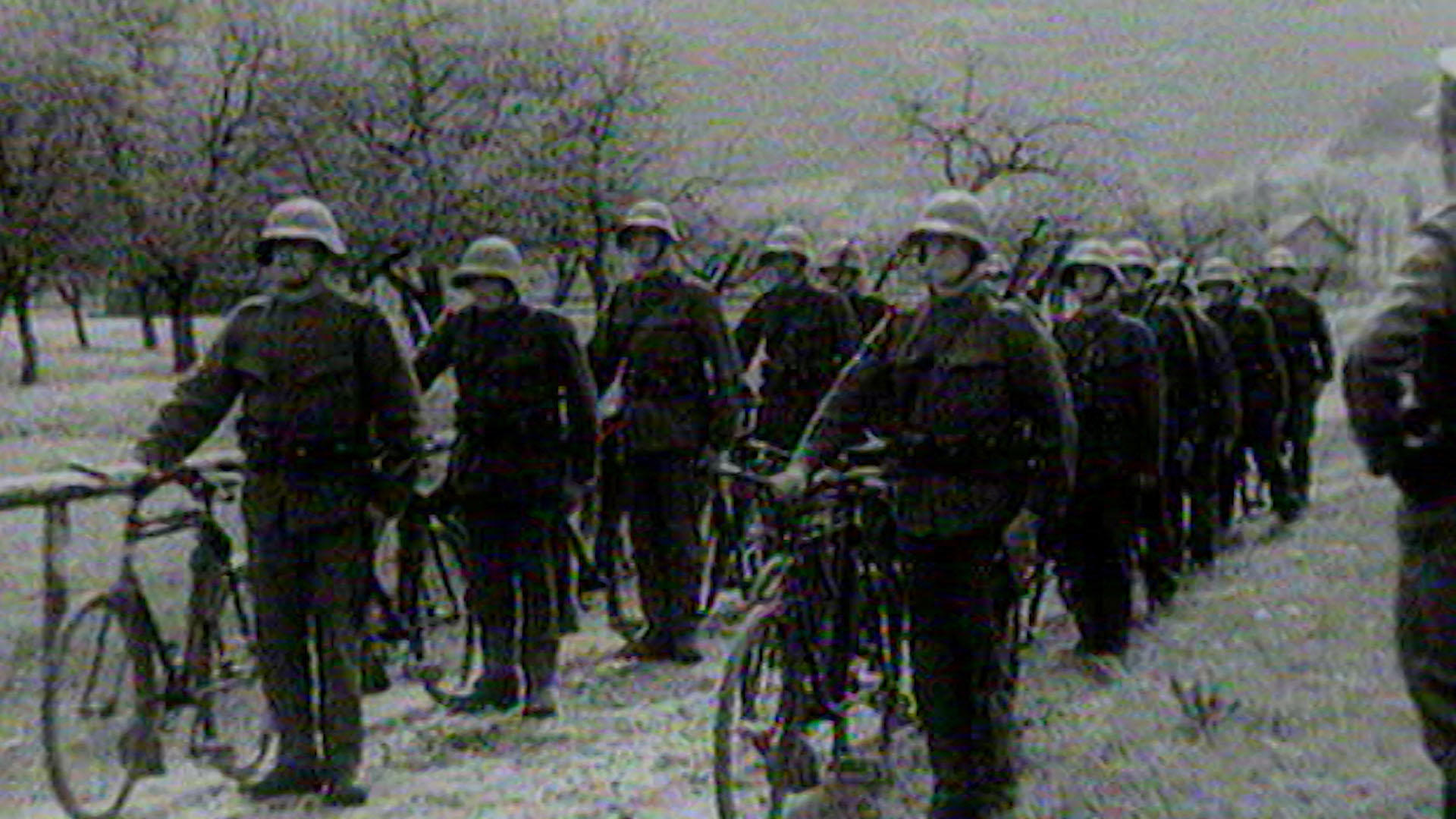What we can learn from the D-Day landings in the age of Brexit and Trump
On the 75th anniversary of the landings on the Normandy beaches, it’s worth highlighting a different legacy of D-Day - the unprecedented multinational political and organizational cooperation.
On June 6, 1944, German soldiers stationed along France’s Normandy coast awoke to an astonishing sight. “I had never seen such an assembly of ships, and I’m sure nobody will ever see such a thing again, perhaps not in human history. The sea was absolutely solid with metal,” wrote one defender.
Since midnight, field telephones in military headquarters across much of northwestern France had rung to report airborne landings, bombing raids and sabotage activity of various kinds. At around 6:30 a.m., soldiers of the 4th US Infantry Division disembarked from their landing crafts onto Utah beach, followed in the next few hours by troops landing at the four other target beaches, code-named Omaha, Juno, Gold and Sword. By the end of the day some 150,000 troops had crossed the channel.

Historical events of a sufficient scale have a tendency to anchor themselves in the popular imagination in ways decoupled from historical scholarship, all the more so if it plays into a patriotic narrative. D-Day – termed Operation Overlord by Allied planners and “the longest day” by a German staff officer – is no exceptionExternal link. In the American and British imagination, the invasion was the decisive blow against German military capabilities or, in the words of author Stephen Ambrose, “the Climactic Battle of World War Two”. Its legacy has been cemented by films such as Saving Private Ryan and the TV series Band of Brothers. For Russian commentators, on the other hand, the invasion’s significance is the fact that it did not occur sooner. Stalin suspected that the Western Allies deliberately held off in order to let the Red Army and the German Wehrmacht bleed each other dry. In smaller countries, too, the invasion is a centerpiece of the war’s narrative—a coming of age for Canada and the triumphant return of Charles de Gaulle for France.
But in the age of Brexit, Trump and nationalist movements of various stripes from Russia to Brazil, we should take a closer look at this chapter of history as an example of how states can work together to carry out an unparalleled operation. Never before and, it could be argued, never since have independent nations worked so intimately to design and implement an endeavor of such scale and complexity. Operation Overlord involved careful coordination of some 7,000 ships and 11,000 aircraftExternal link, the first-time implementation of a host of new technologies—from amphibious tanks to portable harbors—, the processing of mountains of data from meteorological to signal intelligence, and the directing of soldiers and sailors representing some 13 countries. By the end of the month over 850,000 men, 148,000 vehicles and 570,000 tons of supplies had crossed the Channel. This is a monumental achievement, one for which the credit cannot be laid at any single country’s feet.
Though the bulk of the organizational effort and the subsequent fighting rested on American, British and Canadian shoulders, Australian, Belgian, Czech, Dutch, French, Greek, New Zealand, Norwegian, Rhodesian and Polish soldiers, sailors and airmen played minor rolesExternal link as well. The only Allied ship to be sunk by German torpedoes during the invasion was the Norwegian Svenner with the loss of 32 Norwegian sailors. The effort of the French resistanceExternal link—numbering over 300,000 by the time of the invasion–in sabotaging railway infrastructure was vital in preventing a quick inflow of German reinforcements into Normandy. Even the Soviet Union contributed to the endeavor’s success by timing the launch of its massive Operation Bagration on the Eastern Front at least in part to prevent the Germans from transferring troops to the West.
+ Read how swissinfo.ch’s predecessor, the Swiss Short Wave Service, covered the Second World War
This cooperation started at the top and long before the invasion itself—Winston Churchill and Franklin D. Roosevelt had worked closely together throughout the war, often at the objection of their generals. They wrote nearly 2,000 letters and other messagesExternal link to each other during the conflict. Exemplifying the closeness of the cooperation was the Combined Chiefs of Staff Committee, a true innovation in warfare. The multinational committee, based in Washington, turned the strategic decisions made by Churchill and Roosevelt into concrete military action and upended the sacrosanct right of a sovereign nation to independently direct its own top generals. British Field Marshal Alan Brooke, an early sceptic of the institution, called it, “the most efficient organization that had ever been evolved for coordinating and correlating the war strategy and effort of Allies.” By the time Dwight D. Eisenhower was tasked with planning Operation Overlord, the backbone of intimate multinational cooperation was firmly entrenched. While friction along national lines remained, in particular with the intransigent French General Charles de Gaulle and some elements of the Polish government in exile, the spirit of cooperation never came undone.
D-Day was not the most decisive battle of the war. Nor was its planning and execution flawless – in fact, for a while on that fateful day 75 years ago, the endeavor threatened to flounderExternal link. Yet it is a stark example of how intimately countries can cooperate, even in the face of harrowing odds, given the proper institutions and political will. And so, amid today’s increased nationalist rhetoric, we may be well served by commemorating D-Day’s multinational legacy.
The views expressed in this article are solely those of the author, and do not necessarily reflect the views of swissinfo.ch.

More
When the Americans bombed a Swiss town

In compliance with the JTI standards
More: SWI swissinfo.ch certified by the Journalism Trust Initiative












You can find an overview of ongoing debates with our journalists here . Please join us!
If you want to start a conversation about a topic raised in this article or want to report factual errors, email us at english@swissinfo.ch.